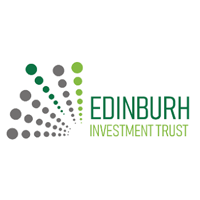Edinburgh Investment Trust plc (LON:EDIN), today announced half year report for the six months to 30 September 2018.
Investment Objective
The Edinburgh Investment Trust plc is an investment trust whose investment objective is to invest primarily in UK securities with the long term objective of achieving:
1. an increase of the Net Asset Value per share in excess of the growth in the FTSE All-Share Index; and
2. growth in dividends per share in excess of the rate of UK inflation.
The Company will generally invest in companies quoted on a recognised stock exchange in the UK. The Company may also invest up to 20% of the portfolio in securities listed on stock exchanges outside the UK. The portfolio is selected on the basis of assessment of fundamental value of individual securities and is not structured on the basis of industry weightings.
Nature of the Company
The Company is a public listed Investment Company whose shares are traded on the London Stock Exchange. The business of the Company consists of investing the pooled funds of its shareholders, according to a specified investment objective and policy (set out on page 12 of the Company’s 2018 annual financial report), with the aim of spreading investment risk and generating a return for shareholders.
The Company uses borrowing to enhance returns to shareholders. This increases the risk to shareholders should the value of investments fall.
The Company has contracted with an external investment manager, Invesco Fund Managers Limited (the ‘Manager’), to manage its investments and to provide the Company’s general administration. Other administrative functions are contracted to other external service providers. The Company has a Board of non-executive directors who oversee and monitor the activities of the Manager and other service providers on behalf of shareholders and ensure that the investment objective and policy is adhered to. The Company has no employees.
Performance Statistics
| Six months to | ||||
| 30 September 2018 | ||||
| Total Return(1)(2) (all with income reinvested) | % Change | |||
| Net asset value (NAV) – debt at market value | +8.7 | |||
| Share price | +7.6 | |||
| FTSE All-Share Index | +8.3 | |||
| The Company’s benchmark is the FTSE All-Share Index. | ||||
| At | At | |||
| 30 September | 31 March | % | ||
| 2018 | 2018 | Change | ||
| Capital Return(2) | ||||
| Net asset value – debt at market value | 749.12p | 703.34p | +6.5 | |
| Share price(1) | 676.0p | 642.0p | +5.3 | |
| FTSE All-Share Index(1) | 4,127.91 | 3,894.17 | +6.0 | |
| Discount2 – debt at market value | 9.8% | 8.7% | ||
| Gearing (debt at market value) | – gross gearing(3) | 11.1% | 12.1% | |
| – net gearing(4) | 10.1% | 11.8% | ||
| Retail Price Index(1) – annual change | 3.3% | 3.3% | ||
| % | ||||
| Six months to 30 September | 2018 | 2017 | Change | |
| Revenue Return | ||||
| Revenue return per ordinary share | 15.6p | 16.9p | –7.7 | |
| First interim dividend(5) | 6.25p | 5.8p | +7.8 |
Notes:
1. Source: Refinitiv (Thomson Reuters).
2. Defined in the Glossary of Terms and Alternative Performance Measures on page 75 of the 2018 annual financial report.
3. Gross gearing: borrowings ÷ NAV (both with debt at market value).
4. Net Gearing: borrowings less cash and cash equivalents ÷NAV (both with debt at market value).
5. Dividends declared in respect of the financial year.
Chairman’s Statement
These six month results are reported against the continued backdrop of uncertainties arising from Brexit negotiations and global trade tensions.
Our portfolio manager Mark Barnett, with an unchanged strategy, continues to focus on the long term fundamentals of the companies he invests in. His Portfolio Manager’s Report gives an overall market review, together with a review of major portfolio changes during the six months.
Performance
The Company produced a positive net asset value (NAV) total return for the six months to 30 September 2018 of 8.7% (with debt at market value). This was marginally ahead of that of the FTSE All-Share Index, the Company’s benchmark, which returned 8.3%. The share price total return (share price with dividends reinvested) for the period was 7.6%, with the Company’s share price ending the period at 676.0p, an increase of 5.3% from the year end share price of 642.0p.
The discount of the NAV to the share price widened from 8.7% at the year end to 9.8% on 30 September 2018, reflecting a general widening of discounts across the sector in the period. At 16 November 2018, the share price of 628.0p was at a 8.1% discount to the NAV of 683.1p (the latest practical date prior to signing this report).
During the period 185,000 shares were bought back and held in treasury at an average price of 675.48p per share, excluding costs. At the period end the share capital consisted of 195,481,734 shares in circulation and 185,000 shares held in treasury. Subsequent to the period end, no shares have been bought back.
The portfolio continues to be concentrated in a number of stocks and sectors and its overweight or underweight positions in various sectors will be material drivers of the Company’s relative investment performance.
Dividend
As in previous years, the Board continues its aim to rebalance the interim and final dividends towards the interims, whilst simultaneously aiming to at least maintain the final dividend. Consequently, the Board has declared a first interim dividend of 6.25p (2017: 5.8p), an increase of 7.8%. This will be paid on 30 November 2018 to shareholders on the register on 16 November 2018, with shares quoted ex-dividend on 15 November 2018.
The Board is committed to grow the dividend payable to shareholders by at least the rate of inflation.
Borrowings
The Company has in place a mixture of fixed and floating rate debt. The former is the Company’s £100 million 7¾% debenture which matures in 2022 and the latter a £150 million, 364 day bank credit facility. By this means, Mark has the ability to vary the gearing level of the portfolio depending on his view of the market. During the period under review aggregate borrowings ranged between £139.6 million and £177.6 million, and ended the period at £142.6 million – equivalent to gross gearing of 11.1%.
Outlook
The portfolio is based on a number of key pillars: exposure to tobacco, which Mark believes continues to offer value even in an environment of rising interest rates, the UK Domestic sector, which has been de-rated significantly since the Brexit vote and where there is potential for recovery, non-correlated financials and a set of attractive large caps. Together the portfolio offers a degree of resilience in the face of uncertainties underpinned by dividend growth.
Edinburgh Investment Trust remains confident that Mark’s high conviction approach to investment, driven by fundamental careful stock selection, remains an appropriate approach for such uncertain times. This approach will inevitably lead to periods in which portfolio performance diverges from that of the benchmark FTSE All-Share Index and therefore may result in periods of under performance.







































